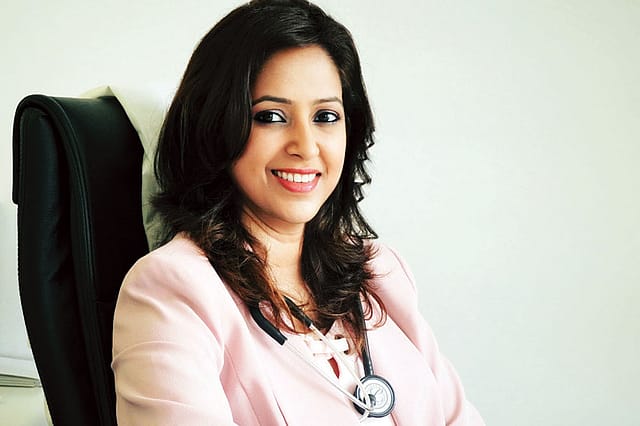Know Diabetes, Beat Diabetes

WHAT IS DIABETES AND HOW CAN IT BE TESTED FOR?
Diabetes or Diabetes mellitus is a metabolic disorder characterised by high blood glucose (sugar) levels. All the cells in your body need sugar to work normally. Sugar gets into the cells with the help of a hormone called insulin. Insulin acts as the "key" that unlocks the cell wall "door," which allows sugar to enter your body's cells.If there is not enough insulin or if your body stops responding to insulin, sugar builds up in the blood.
Diabetes is diagnosed by testing blood glucose level. There are four ways of testing: 1)Fasting plasma glucose test (best done in the morning after an eight hour fast), 2) Random plasma glucose test (can be done any time without the need to fast), 3) HbA1C or glycated hemoglobin test, provides your average blood glucose level over the past two to three months, 4) Oral glucose tolerance test.
WHAT ARE THE TYPES OF DIABETES?
The types of diabetes are:
Type 2 diabetes: This is the most common type and usually occurs in middle-aged and older people. In this, the body stops responding to normal or even high levels of insulin (insulin resistance), and over time, the pancreas does not make enough insulin.
Type 1 diabetes: This type is an autoimmune disease where the insulin-producing cells in the pancreas are destroyed. It is usually diagnosed in children and young adults (but can develop at any age).
Gestational diabetes: This type develops first time during pregnancy. Gestational diabetes usually goes away after pregnancy. However, if you have gestational diabetes you're at higher risk of developing Type 2 diabetes later on in life.
Other types: diabetes can occur secondary to disorders in the pancreas or due to some genetic disorders.
WHO IS AT RISK OF DEVELOPING DIABETES?
Certain risk factors put you at increased risk of type 2 diabetes such as : Family history (parent or sibling) of prediabetes or Type 2 diabetes, overweight/obesity, high blood pressure and cholesterol levels, being physically inactive, having gestational diabetes, having polycystic ovary syndrome, having a history of heart disease or stroke and smoking.
WHAT HEALTH PROBLEMS DOES DIABETES CAUSE?
If the diabetes is not well managed and blood sugars remain high for a long time then various organs of the body can get affected resulting in complications. Such complications are: nerve damage (neuropathy), eye damage (retinopathy), kidney damage (nephropathy), high blood pressure, high cholesterol, coronary artery disease resulting in heart attack, stroke and foot infections which sometimes require amputation. In the presence of high blood sugars a person feels fatigued, depressed and quality of life goes down.
HOW IS INDIA FACING THE PROBLEM OF DIABETES?
Diabetes is a growing challenge in India with an estimated 77 million people living with diabetes which makes it the second most affected in the world. Majority of the cases are type 2 diabetes and overweight/obesity is the major contributing risk factor. In fact, India is currently witnessing a rapidly emerging "Diabesity" (obesity and diabetes) epidemic. Important reasons for rising cases of type 2 diabetes in India are: different metabolic phenotype of Indians which means having high body fat percentage (especially around waist) and less muscle mass, growing popularity and easy availability of fast foods and physical inactivity. Almost half of the Indians with type 2 diabetes are relatively young and a progressive rise of cases is being seen in adolescents and young adults which is a cause of serious concern.
HOW CAN SOMEONE MANAGE DIABETES?
A good lifestyle management including regular physical activity (minimum 30 mins a day), eating balanced carbohydrate-controlled diet, and getting proper sleep, is the cornerstone of effective diabetes management. Take medications on time and check sugars regularly at home with glucometer. Maintain your HbA1C below 7%. Get yourself screened for complications once in a year with the help of blood tests and other tests. Keep in touch with an Endocrinologist/Diabetologist for check-ups and timely change in medications if required.
MESSAGE FOR READERS
Diabetes care is a lifelong responsibility and your efforts and careful diabetes care can reduce your risk of complications. Beat diabetes by adopting a healthy lifestyle right from childhood. Know your risk of diabetes and empower yourself by making your health the number one priority.
(A marketing initiative by Open Avenues)